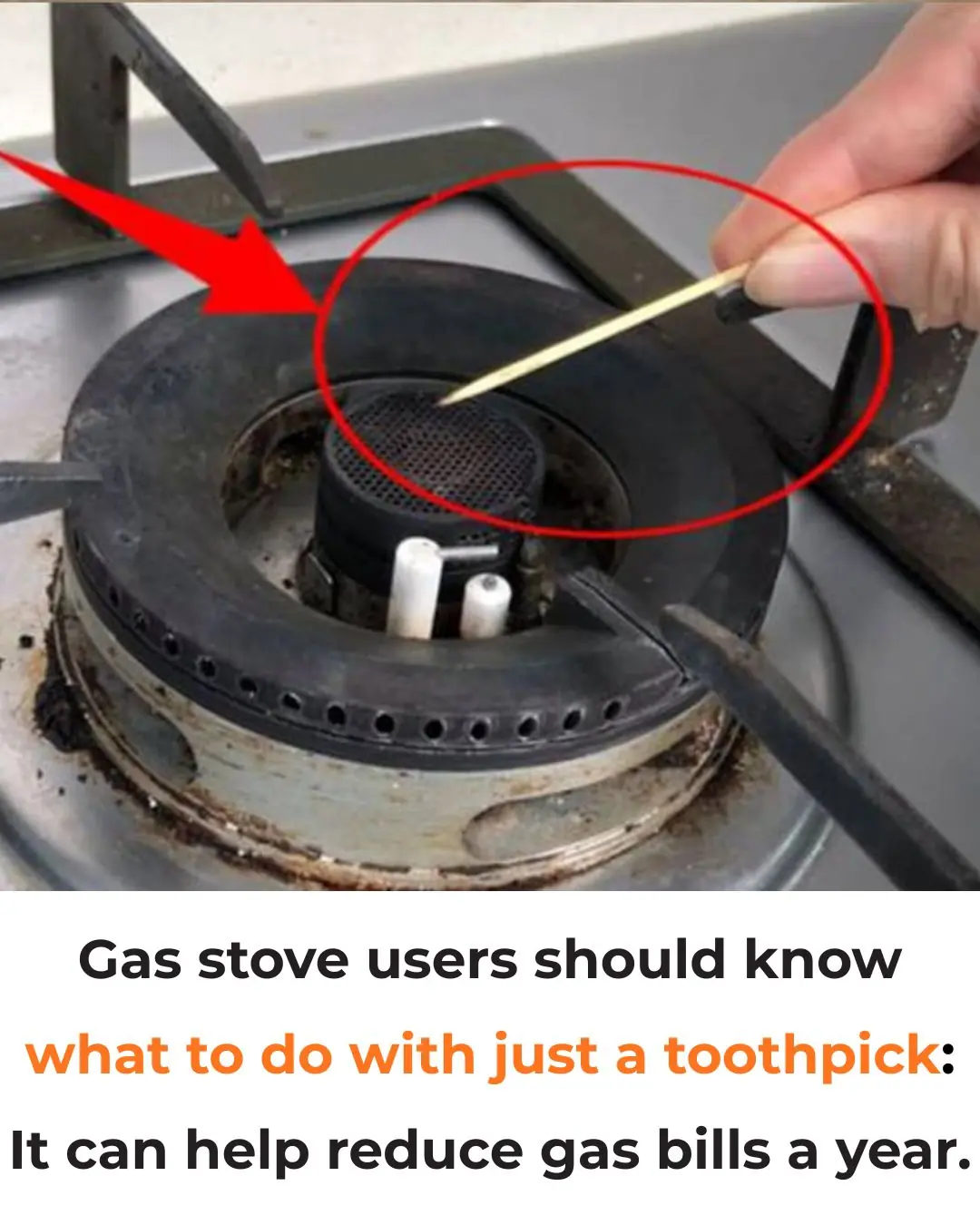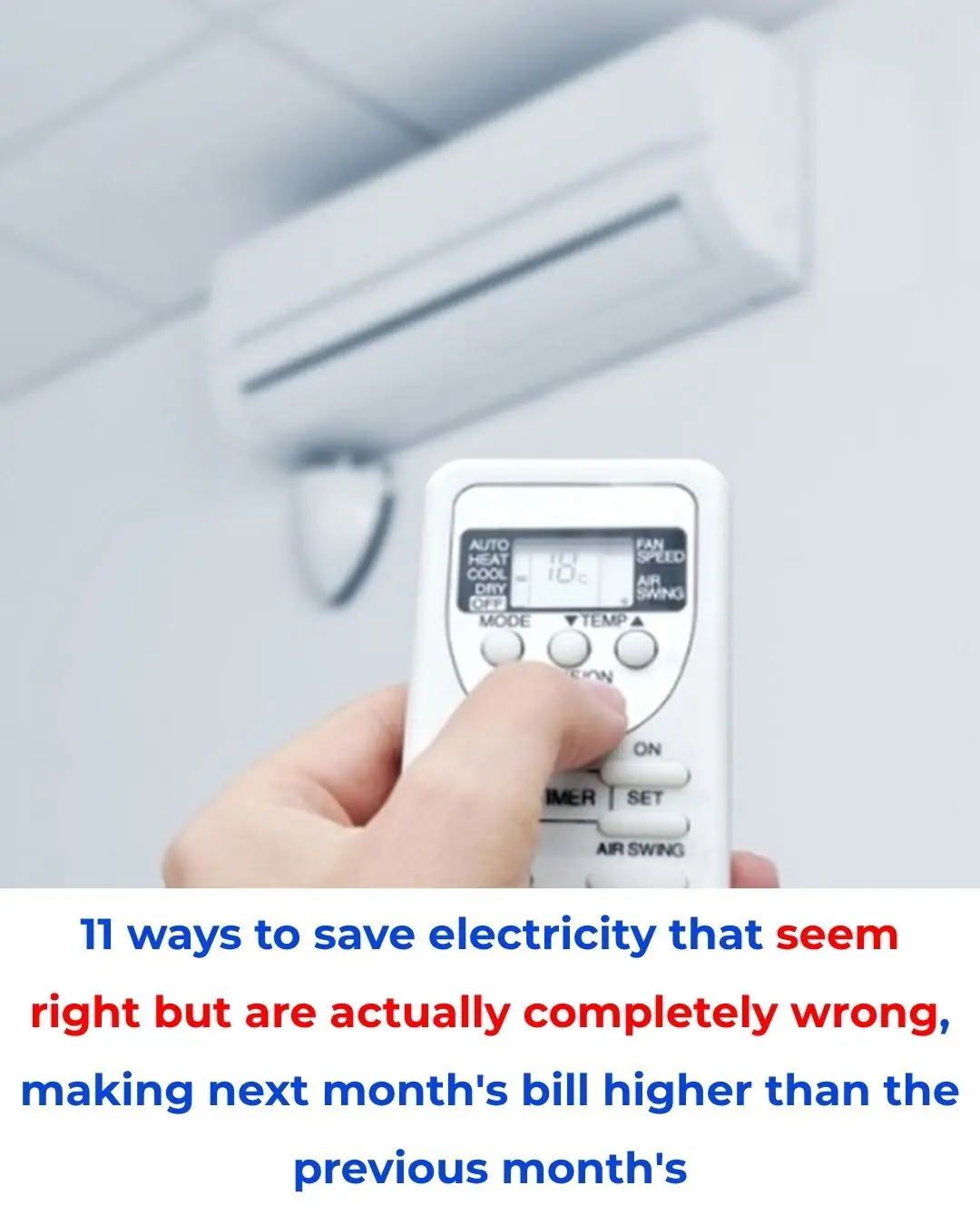
Turning on the air conditioner at night at 28 degrees Celsius, thinking it would save electricity, turned out to be a mistake: This is the appropriate level, should be fixed immediately.

How to Use Your Air Conditioner Efficiently and Save Electricity
You should always set your air conditioner to a comfortably cool temperature, not too cold, as excessive cooling can negatively affect your health and cause the unit to consume more electricity.
Many people believe that keeping the air conditioner above 28°C (82°F) at night helps save a lot of power. However, this is not entirely true. In fact, maintaining too high a temperature might make your air conditioner run longer to reach the desired comfort level, which could offset any energy savings.
The Ideal Temperature Range
According to experts, the optimal temperature range for air conditioners in Vietnam’s climate is between 24°C and 28°C (75°F–82°F). Within this range, your air conditioner operates efficiently, your body remains comfortable, and the indoor–outdoor temperature difference is not too drastic.
Keeping the temperature too low not only wastes energy but can also cause sore throats, dry skin, or respiratory discomfort. Conversely, setting it too high may make your sleep restless and less refreshing.
For health and efficiency, avoid setting your air conditioner below 20°C (68°F). A large temperature difference between indoors and outdoors can lead to fatigue and increase the risk of colds, especially when transitioning outside.
Choose the Right Cooling Capacity
Before buying an air conditioner, calculate the appropriate cooling capacity (BTU) based on the size of your room.
-
If the capacity is too high, it wastes power and money.
-
If it’s too low, the unit must work continuously, increasing energy consumption and wear.
An air conditioner that matches your room size will not only save electricity but also operate more quietly and last longer.
Proper Installation and Placement
Install the indoor unit in a central position to distribute cool air evenly throughout the room. Avoid placing it near doors, windows, or corners where cold air can escape.
For the outdoor unit, choose a shaded area or build a small cover to protect it from direct sunlight and rain. Ideally, the distance between the indoor and outdoor units should be between 3 and 15 meters to ensure smooth refrigerant circulation and optimal performance.
Avoid Frequent On/Off Cycles
It’s a common misconception that turning the air conditioner off when it feels cool and turning it back on when it gets warm will save energy. In reality, this method increases power consumption. Restarting the compressor repeatedly requires more electricity and reduces the unit’s lifespan.
Most modern air conditioners automatically lower their power usage once the desired temperature is reached, maintaining comfort efficiently. If you feel too cold, simply raise the temperature setting by one or two degrees instead of turning the unit off completely.
Clean and Maintain Regularly
Over time, air conditioners accumulate dust and debris, which can block airflow and reduce cooling efficiency.
Schedule professional maintenance at least twice a year and clean the air filters every two to four weeks. Regular care helps your air conditioner cool faster, last longer, and use less power. You’ll also enjoy cleaner air quality inside your home.
Turn Off the Air Conditioner 30 Minutes Before Leaving
If you plan to go out, turn off your air conditioner about 30 minutes in advance. The room will remain comfortably cool for a while, allowing you to make use of the residual cold air and save energy at the same time.
Use Sleep Mode or Timer Function at Night
Most modern air conditioners include a sleep mode, which automatically adjusts the temperature as the night gets cooler. This feature keeps you comfortable while preventing unnecessary power use.
If your unit doesn’t have this function, set a timer to turn it off after a few hours. You’ll still sleep comfortably while avoiding overcooling and high electricity bills.
Choose an Inverter Air Conditioner
If you use air conditioning frequently, investing in an Inverter air conditioner is a wise choice.
Inverter technology allows the compressor to adjust its speed instead of turning on and off repeatedly. This maintains a stable temperature while using up to 30–50% less electricity. Though the initial cost is higher, the savings on your electricity bill and longer equipment lifespan make it worthwhile in the long run.
Additional Tips for Better Efficiency
-
Close doors and windows tightly while the air conditioner is on to prevent cool air from escaping.
-
Use curtains or blinds to block sunlight during the hottest hours.
-
Combine with a fan to help circulate cool air faster, allowing you to set the temperature higher without losing comfort.
-
Unplug unused electronics—devices left in standby mode can generate heat and add to your air conditioner’s workload.
By following these simple but effective practices, you can maintain a comfortable living environment, reduce your electricity bills, and extend the life of your air conditioner — all while protecting your health and the environment.
News in the same category


When pickling cucumbers, do not use boiled water that has been left to cool: Use this water to make the cucumbers crispy, delicious, and golden brown in just 1 night.

Washing machines accumulate a lot of dirt and bacteria: Pour this bowl into the washing machine to clean it like new and have fresh smelling clothes immediately.

Lemon Seeds Can Save a Snakebite Victim Within Just One Minute If Used This Way

Why Keeping A Lemon In Your Bedroom Is A Great Idea

Put salt in your toilet. Here's why. This is something plumbers will never tell you

When Checking Out of a Hotel, Don’t Fold the Bedding—Not Knowing This Will Only Cause Trouble

Pour Beer into Table Salt to Solve Many Household Problems – Wish I Knew This Trick Sooner!

If you have this plant in your garden, don’t cut it down – it’s incredibly valuable!

The water pipe is clogged, do this way to solve it easily, no need to call a plumber

Cut soap and mix with sugar and put it in the corner of the house: Mosquitoes will fly black, the whole house will be clean and fragrant, everyone will like it

Should toilet paper be thrown in the toilet or the trash: Seems simple but not everyone knows the correct answer

Gas stove users should know what to do with just a toothpick: It can help reduce gas bills a year

11 ways to save electricity that seem right but are actually completely wrong, making next month's bill higher than the previous month's

6 things mice are very afraid of, just put them in the house and the mice will run away

Put a handful of salt in the refrigerator: A golden use that every home needs

5 tips to keep your bathroom smelling fresh all week without having to clean it

How to clean air conditioner at home simply, clean and shiny: No need to waste money calling a technician

Put a drop of essential oil on clothes while soaking: "Special" use, not everyone knows how to apply it
News Post

The general director found out that the cleaning lady was fluent in nine languages and immediately offered her a new position.

How to deodorize bathroom and toilet extremely effectively

When pickling cucumbers, do not use boiled water that has been left to cool: Use this water to make the cucumbers crispy, delicious, and golden brown in just 1 night.

Washing machines accumulate a lot of dirt and bacteria: Pour this bowl into the washing machine to clean it like new and have fresh smelling clothes immediately.

Here’s the secret why everyone puts avocados on the fire!

Taro Root: The Ancient Superfood Transforming Health and Sustainability

Canker Sores Are The Absolute WORST…Here’s How To Get Rid of Them Fast!

U.S. Life Expectancy Lags Behind Other Wealthy English-Speaking Nations — The Contributing Factors

5+ Things Your Feet Can Reveal About Your Health (That You Shouldn’t Ignore)

The Aloe Vera Gel Is Not the Only One Very Useful

The 1,300-Year-Old Loaves That Brought the Words “I Am the Bread of Life” to Life

Student, 21, died just days after getting what they thought was ‘fresher’s flu’ as family issue warning

Grieving Mother Bear Hunts Wolves in Chilling Act of Revenge

The Stray and the Green Triceratops: A Toy That Became a Lifeline

Thrown Away, Yet Still Breathing: The Heartbreaking Rescue of a Puppy Named Kiss
The Dog Who Carried a Toy—and Found a Family’s Love

How to Use Hà Thủ Ô to Promote Hair Growth and Give You Dark, Smooth Hair

A Fruit Called the “Best of the 21st Century” — Grown in Many Vietnamese Gardens, Yet Rarely Eaten
